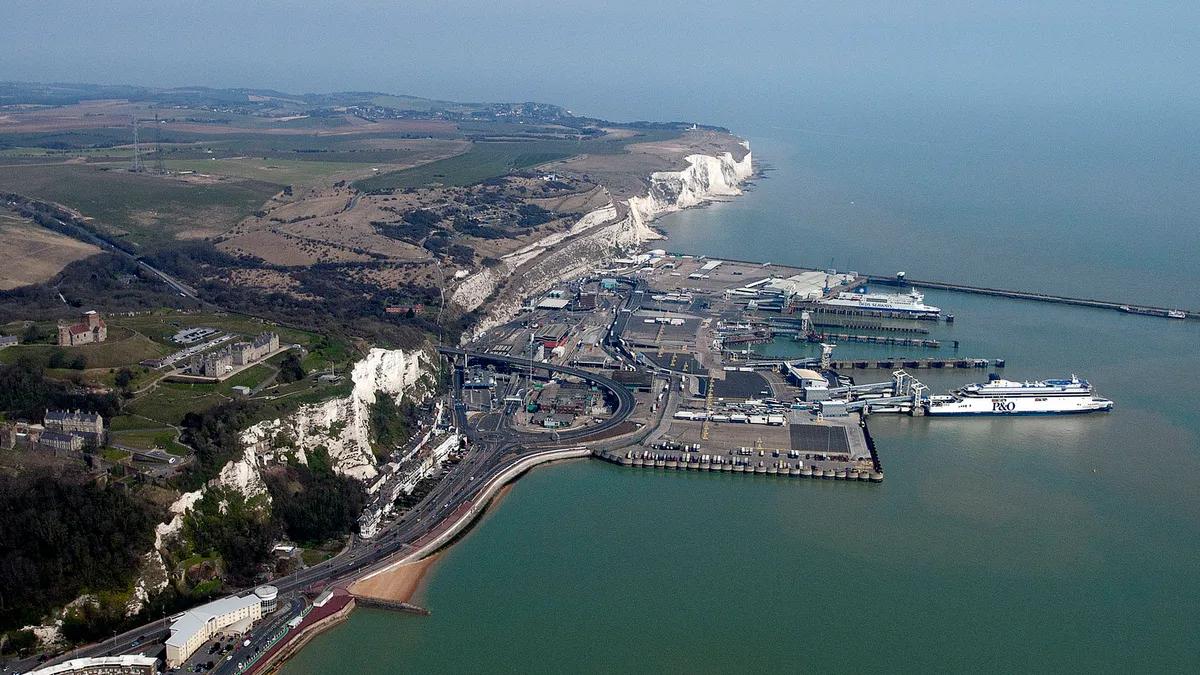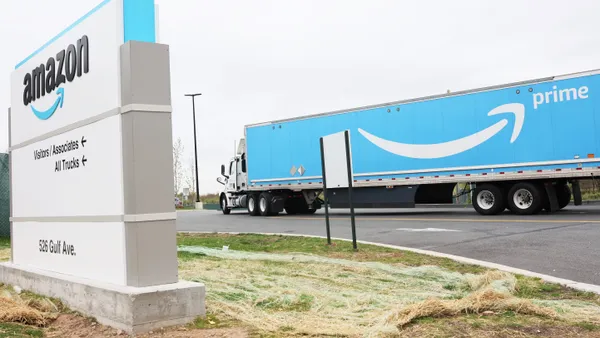Dive Brief:
- The European Union-United Kingdom Trade and Cooperation Agreement went into force Friday, roughly one week after negotiators finalized the deal. While it does not contain any new tariffs or quotas between the parties, the last-minute approval offers little time for supply chains to adjust.
- The Society of Motor Manufacturers and Traders, an organization of European auto-manufacturers called for a grace period for some administrative requirements. The U.K. has offered a six-month delay on some new customs requirements but the EU has not, according to the law firm of Pinsent Masons.
- Additional paperwork and declarations at border crossings will be required, leading to longer processing times. Border delays will affect just-in-time and perishable supply chains the most, according to the law firm. The deal does not include stipulations for "mutual recognition" so customs procedures, such as verifying point of origin, will be performed by both parties and U.K. verification will not be accepted by the EU nor vice versa.
Dive Insight:
Since early December, stockpiling behaviors and preemptive trade shifts, have caused some upheaval in the normal flow of freight between the U.S. and the U.K. Freight forwarders have been declining to transport goods into the U.K. for weeks leading up to the new year for fear that they won't be able to return with a backload or that long lines will delay drivers, Bloomberg reported.
The often relatively slow period between Christmas Day and the New Year led to a quiet first few days, but as trade picks up in the new year, officials expect delays to accrue beginning Monday.
Aidan Flynn, general manager of Freight Transport Association Ireland, warned that supply chains will need to re-engineer their processes, building in more time between order and delivery. Flynn ball-parked the necessary delay at 12 hours, according to the Irish Times.
Before the deal's final approval, the Port of Rotterdam said it expected a 20% to 30% increase in cargo declarations for imports and exports.
The 1,246-page document was published mere days before it went into effect, which means many supply chain professionals are still working out the final implications. But the deal has also triggered some actions that will eventually help solidify and normalize the new conditions for U.K.-EU freight flow.
The UK is building a 1,200-truck capacity "Inland Border Facility" parking lot at the Dover Port to open in July.













